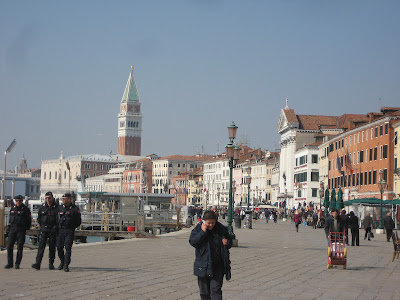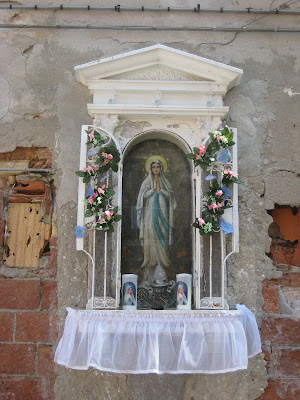Jimmy and I recently embarked on yet another adventure. This time to Romania. Because Romania is so inexpensive we were able to spend many days there, and were able to have adventures all over Transylvania.
For those of you unfamiliar with the history of this part of the world, Transylvania belonged to the Kingdom of Hungary until the Treaty of Trianon, after WWI, assigned the territory to Romania. Also, in medieval times, the Hungarian kings offered Saxon settlers semi-autonomy for their loyalty (loyalty primarily meaning their help in fighting off the Turks and other invaders). Hence, the region has a rich history and is peopled by individuals of many ethnic backgrounds, including Magyars, Saxons, and people of Romanian heritage. Today, all these people are called Romanian, but they are still aware of their cultural heritage, and do much to maintain the traditions of the past. Because of this rich heritage, most towns have three names---a Romanian name, a Saxon name, and a Hungarian name. Most names are posted in both Romanian and Saxon. I understand if you visit regions of Sekely Land, which is another part of Transylvania populated by the Sekely people, who are of Hungarian descent, most signs will be posted in Romanian and Hungarian instead of Romanian and German.
The first town we visited was Sighisoara, or Schassburg in German (Segesvar in Hungarian) well known because it is the home town of a man named Vlad Tepes, aka Count Dracula. For those of you who picture Dracula's hometown having a big castle, like I did, this is incorrect. Sighisoara is one of the most well-preserved medieval citadels in Europe, but there is no castle, per say, in Sighisoara.
 |
| Map of Medieval Sighisoara |
About 4 hours away, near the town of Brasov, is a castle called Bran Castle, which has laid claim to the title of "Dracula's Castle." From all the historians can determine, Dracula may have spent a single night, if that much, in this castle, although the castle itself is a beautiful specimen of medieval castle.
 |
| Bran Castle |
I won't go into too much detail about the long boring train ride, except to say it gets much more exciting after you leave Hungary. First, there is border patrol, so you get to have your passport stamped. Then the countryside starts looking hilly and pretty instead of flat and boring. You start to see bee hives, haystacks, beautiful mountain streams, shepherds with their dogs. It's a lovely sight.
Of course you also see your share of the ravages of Communism and Ceasescu's reign. The train goes through it's fair share of ugly run down communities with abandoned factories, burnt out smokestacks, hideous concrete block multi-story "housing projects." Thankfully this gives way to more beautiful countryside and mountain views.
It's spring, and that was evident in rural Romania. We saw horses plowing fields, people digging huge fields of potatoes by hand, and people working huge stretches of field by hand without help of horse or plow. It was quite picturesque, but it makes you muse on how one's person's poverty is another person's quaintness, and I'm sure those people would have given most anything for a motorized plow, and I can't say I blame them.
We arrived in Sighisoara around 8 and managed to secure the only taxi from the train station to our room in the old town. We were staying at Casa Legenda. Once there we were greeted by our host Florea, a sweet Romanian lady who spoke little English, but between her tiny amount of English and my tiny amount of Romanian we managed to get the key and drop our stuff off in our tiny but clean and pretty room.
The first thing we did was go out to eat. I believe I was haunted by memories of my first trip to Romania. Arriving at 11:00 PM, not being able to get money out of the bank machine before many calls to the NCSECU back home, finally being able to get out a tiny sum well after midnight sometime, before that bank teller broke permanently, leaving me with no place else to obtain cash. On that horrible night I stumbled across an all night "fast food" stand near the train station and bought a "hamburger." Never again will I trust a burger in Europe unless it comes from a sit down restaurant or a McDonald's. I have no idea what kind of meat it was, although I'm pretty sure beef was not one of the components, and certainly not soy. Scrap pig parts is more like it. With this memory haunting me I wanted to make sure we got a hot meal and didn't go to bed hungry.
There was a hostel next to our guest house and they advertised food, and looked busy, so we went inside. They were entertaining a huge group of Romanian students who were all eating sunflower seeds and drinking beer. The proprietor personally got up to take our order and prepare our food.
We both started off the meal with beef ciorba, which is a Romanian soup. Ciorba is one of my favorite types of soup, and I ate it all over Romania. Pictures supplied by google since we were too hungry to take any!
 |
| Beef Vegetable Ciorba |
Jimmy ordered what was to become his meal of choice---breaded fried meat. This time it was "chicken schnitzel" instead of pork. I ordered something my friend Ibolya, who grew up in Romanian but who has one Hungarian parent, insisted I try. It's a dish called mititei, which are little "burgers" as Ibolya calls them. They are actually a mincemeat mixture of pork and beef and probably lamb too, which are rolled into little sausage like rolls and fried. They are served with bread and mustard, and are extremely tasty. This came with boiled potatoes and a salad, and of course I drank apa minerala (sparkling water). It was delicious!
Here is a picture I retrieved online of mititei.
 |
| Mititei |
After supper we packed off to bed so we could start the day early, but we did end up sleeping in a bit he next day. I had just gotten off a several-week stint of late nights, and the night before we left Romania I had been up until after 2 helping a friend with a paper, so we were a bit fatigued.
Move to the next post for cool pics of our first day.
Ciao!




























































